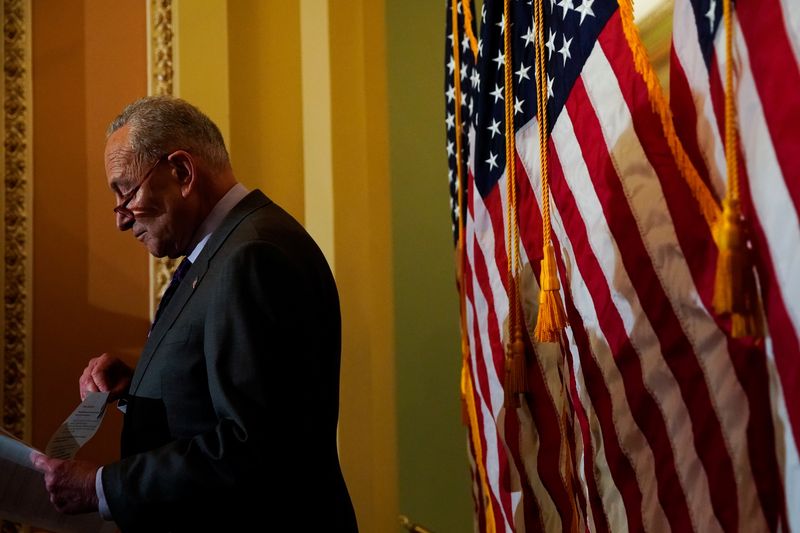By David Shepardson
WASHINGTON (Reuters) -Senate Democratic Leader Chuck Schumer has scheduled an all-senators classified briefing on the global innovation and technology race and a proposed bill to boost U.S. semiconductor manufacturing, his office said on Thursday.
Senate Republican Leader Mitch McConnell threatened last week to try to block the bill that would provide $52 billion to subsidize U.S. semiconductor manufacturing and boost U.S. competitiveness with China if Democrats move forward with a social spending and climate bill.
The briefing planned for Wednesday from the Biden administration will focus "on the global innovation and technology race and the bipartisan innovation bill which is vital for America’s long-term national security."
White House spokeswoman Karine Jean-Pierre said Wednesday the Biden administration wants Congress to move quickly, noting Intel Corp (NASDAQ:INTC) announced it will invest $20 billion to open semiconductor factories in Ohio "and that could expand to as much as $100 billion" if Congress passes chips subsidies.
The Senate legislation, passed in June 2021, included $52 billion for chips subsidies and authorized another $200 billion to boost U.S. scientific and technological innovation to compete with China.
The House version, passed in February, is similar but nearly 3,000 pages long and includes a number of trade proposals not in the Senate bill. Many House provisions are expected to be dropped.
Some fear Congress will not be able to reach a deal before the November congressional elections if it does not come to an agreement in the coming weeks.

A persistent shortage of chips has disrupted the automotive and electronics industries, forcing some companies to scale back production. Commerce Secretary Gina Raimondo, who has been making calls in recent days to try to advance the bill, and many companies think the shortage will last at least until late 2023 if not longer.
Lawmakers warn some major investments in new U.S. chip production could be jeopardized without action from Congress.